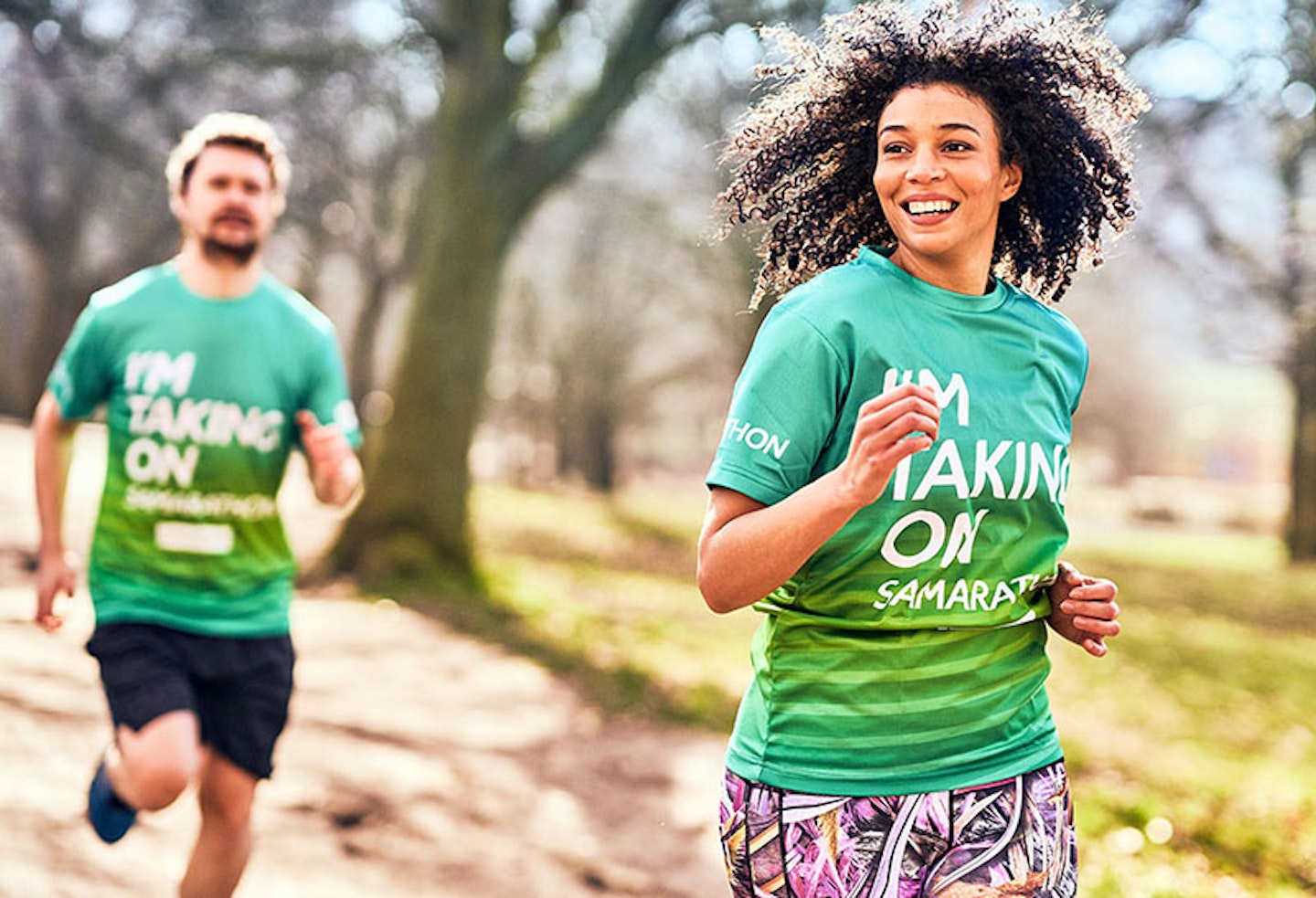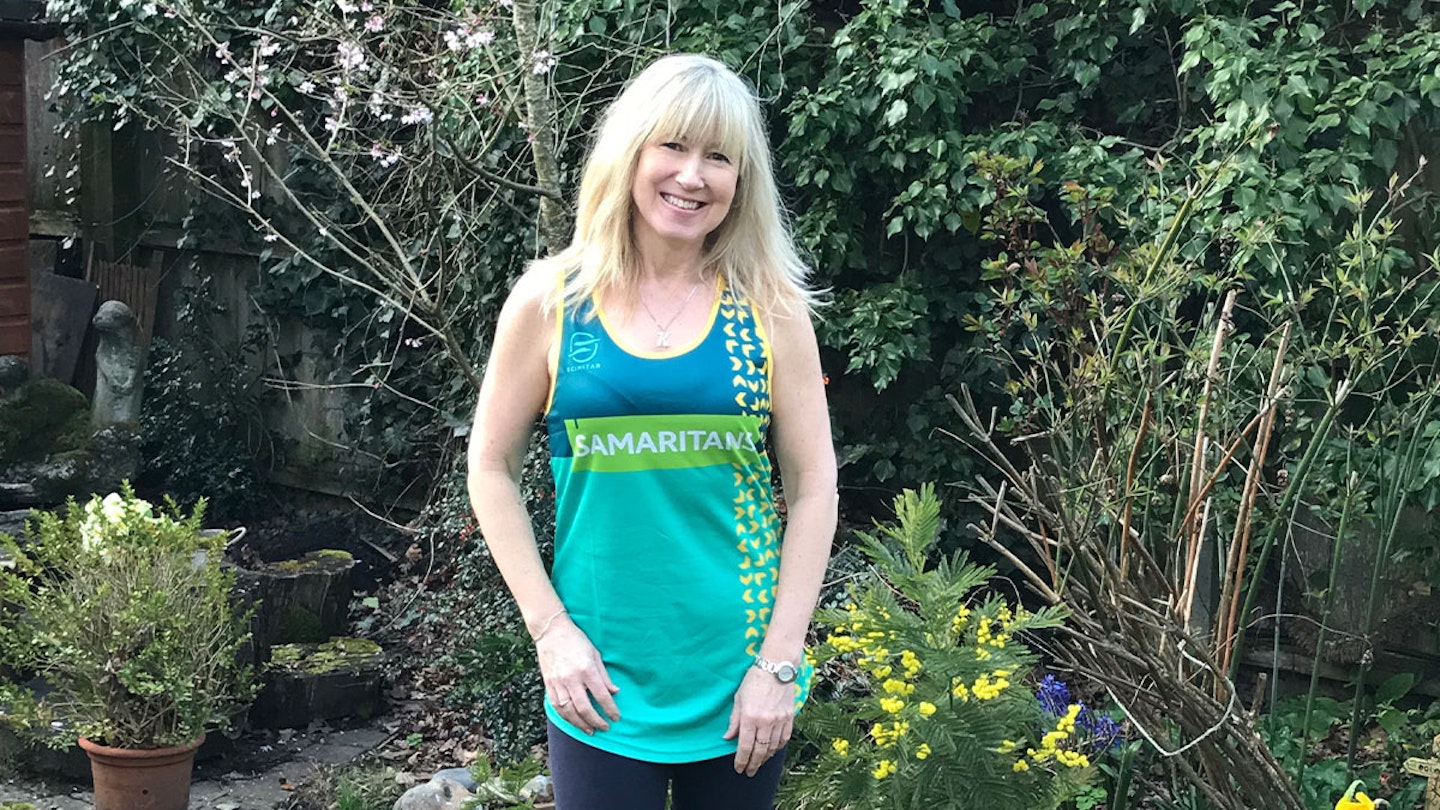Now a volunteer Samaritan herself, Kathryn explains how she’s helping others who are feeling as desperate as she once did.
It came as the ultimate shock when in 2016, and at the age of just 53, Kathryn's sister Alison took her own life.
“A paramedic called me at work to say that she was with my sister and there was nothing she nor anyone could do. I just couldn’t take it in,” says Kathryn.
Alison was always there to make her family and friends laugh with a brilliant impression of someone from TV or politics, she was the life and soul of every room she was in, as well as having a high-flying job with England Squash, arranging tournaments around the country.
At the time, Kathryn had no idea that her sister had been feeling suicidal and only later learned that she’d attempted to take her own life before on several other occasions.
Kathryn was left with so many emotions. “We were so close, it felt devastating that she didn’t feel she could tell me how she was suffering,” says Kathryn. “That gave me this feeling of rejection as well as just disbelief – I couldn’t understand what had happened.”
.png?auto=format&w=1440&q=80)
'I felt like I was truly heard'
Unsure where to turn, Kathryn’s boss recommended she contact Samaritans and discovered a branch just round the corner from her. “I chatted face-to-face to this incredibly kind lady for nearly two hours, and it just helped so much to be able to talk freely about Alison and how I felt without anyone else talking. I felt like I was truly heard and that was so important,” says Kathryn.
Three years on and feeling a little stronger, Alison kept thinking about the Samaritan that had brought her such comfort. She’d also been thinking about how things could have been different if her sister had contacted Samaritans before taking her own life.
“I felt that I wanted to try to support others who may be feeling as desperate as I had,” says Kathryn. So in 2019, Kathryn began her training as a volunteer Samaritan. “I found it quite daunting, and the training was intense, but everyone made me feel so welcome – it was like one big family,” says Kathryn.
Becoming a Samaritans volunteer
Now Kathryn is a regular Samaritans volunteer, answering calls as well as responding to the Samaritans’ email service.
“Being a Samaritan is very humbling and you get such a sense of fulfilment that at the start of a call, someone can be at absolute rock bottom and by the end they might say ‘I feel a lot better now, thank you very much’,” says Kathryn.
“A lot of friends say it must get you down hearing people’s problems in this way but I actually find it very uplifting and it certainly makes me appreciate things more as I realise how many people out there are struggling.”
As well as her volunteering as a Samaritan, Kathryn has also channelled her experiences into co-founding an independent Norfolk-based charity called Empathy which provides bereavement support specifically for people impacted by suicide.
She runs this with Joy Creswell, who lost her son to suicide 14 years ago. “We support people face-to-face and by phone. It’s such a specific and terrible bereavement to lose someone to suicide, being among others who have been through it can be one of the most useful sources of help,” says Kathryn.
Now more than ever, Kathryn feels the need for the support she provides, both through Empathy and Samaritans, as the pandemic has brought many people’s struggles into even sharper focus.
Since the pandemic began, Samaritans have reported an increase in calls related to mental ill health and loneliness, while coronavirus was mentioned as a specific concern in 374,882 emotional support contacts made to Samaritans between March and December 2020.
The pandemic has also contributed to a loss of funding for charities like Samaritans which is why Kathryn, not content with just being an amazing volunteer, is also getting on her running shoes to raise money for the charity’s Samarathon.
The Samarathon

The Samarathon is an annual event in which people can run, jog or walk the distance of a marathon – 26.2 miles – over the month of July to raise money to help Samaritans and volunteers like Kathryn continue their life-saving work.
“As I was never a runner before, I think my sister would be very surprised – but also hopefully quite proud – that I’m doing this,” says Kathryn, who adds that she’s found exercising, alongside talking to people, a real help in recovering from her own grief.
“Suicide is such a complex thing – a build-up of so many different things that leave people feeling in a very hopeless position but there is always another way. I have my sister’s phone and unless she deleted the number, she didn’t contact Samaritans but I often think that if she had, the outcome could have been very different.
“Sadly, contacting Samaritans is often seen a last resort but the service is so much more than that and we are there for people no matter what is troubling them.”
When life is difficult, Samaritans are available – day or night, 365 days a year. You can call them for free on 116 123, email them at jo@samaritans.org, or visit their website to find your nearest branch.
